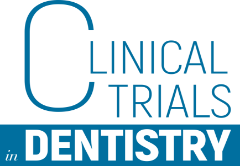Articles
THE FUTURE ROLE OF THE INDUSTRY IN THE DENTAL RESEARCH
Finally, we are starting to see some light at the end of the tunnel. At least in the Western world, the COVID-19 pandemic seems to be under control, thanks to the vaccines, and the rest of the world will follow soon. In 6 months, maximum one year, the matter should be under control globally.
The signs of recovery are evident, at least from an industrial perspective; there has been a general increase in production, and a sensible increase of the costs of the raw materials. In actual fact, there is even a scarcity of specific materials, particularly those that are highly requested by the microchip and the car industry. As a consequence, some factories have had to halt their production while the supply chain catches up.
This is what is happening in general, but what about the dental industry? I recently attended the International Dental Show in Cologne, and the impression there was rather different. Many of the mayor players were absent and the public was rather scarce especially the German dentists. This may not be a complete surprise, since both companies and customers are just emerging from the pandemic, and prudence is a must. But is it just that? When talking to my dentist colleagues, the most common information I am provided is that in the end their business was not impacted by the pandemic to the extent that they had feared; on the contrary, many told me that they have been working harder than usual in this period.
If it is true that they have been busier than usual, they must have been using and needing more materials. However, this does not really appear to be reflected in the general attitude of the dental industry as a whole. I have the impression that they have opted to cut expenses, namely conferences (which are still problematic to organize), advertising and research. I am confident that soon both the conference and the marketing will soon bounce back, but I am more concerned about the fate of research, in particular clinical research, the type required to validate the efficacy and safety of new products and procedures. While it is true that research can be expensive and may not yield immediate results, it remains the key to progress.
Research is booming in many fields, for example vaccines, microchips, fossil fuel alternatives for the car industry, and green energy in general. In clinical dental research, on the other hand, I have observed that many interesting ongoing projects have been cut, while I had been expecting increased attention to this fundamental aspect in view of the new European regulatory matters.
Perhaps the dental industry needs to make more courageous decisions, so that the future is not only limited to digital dentistry, but also sound clinical research.
Happy reading.
Marco



